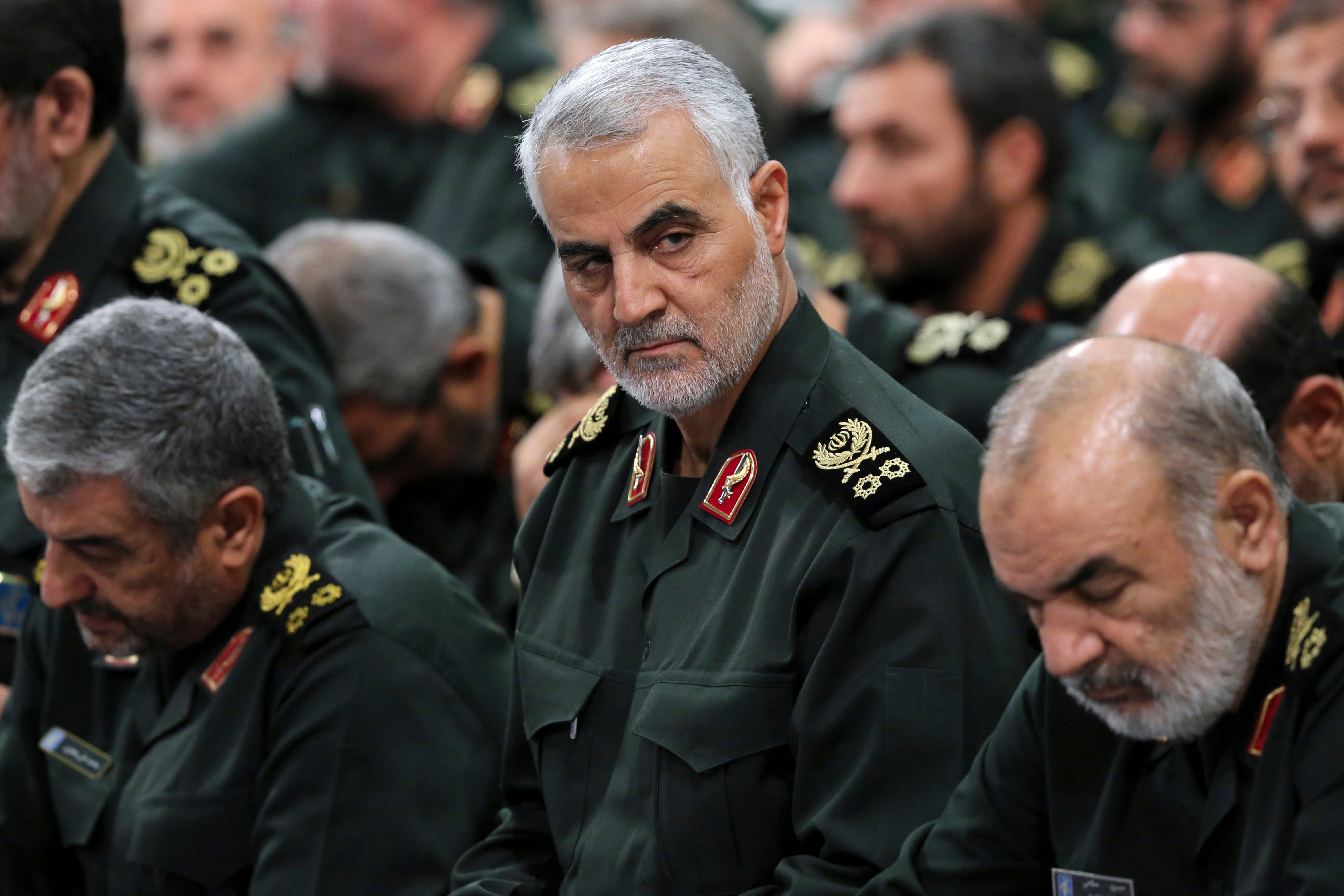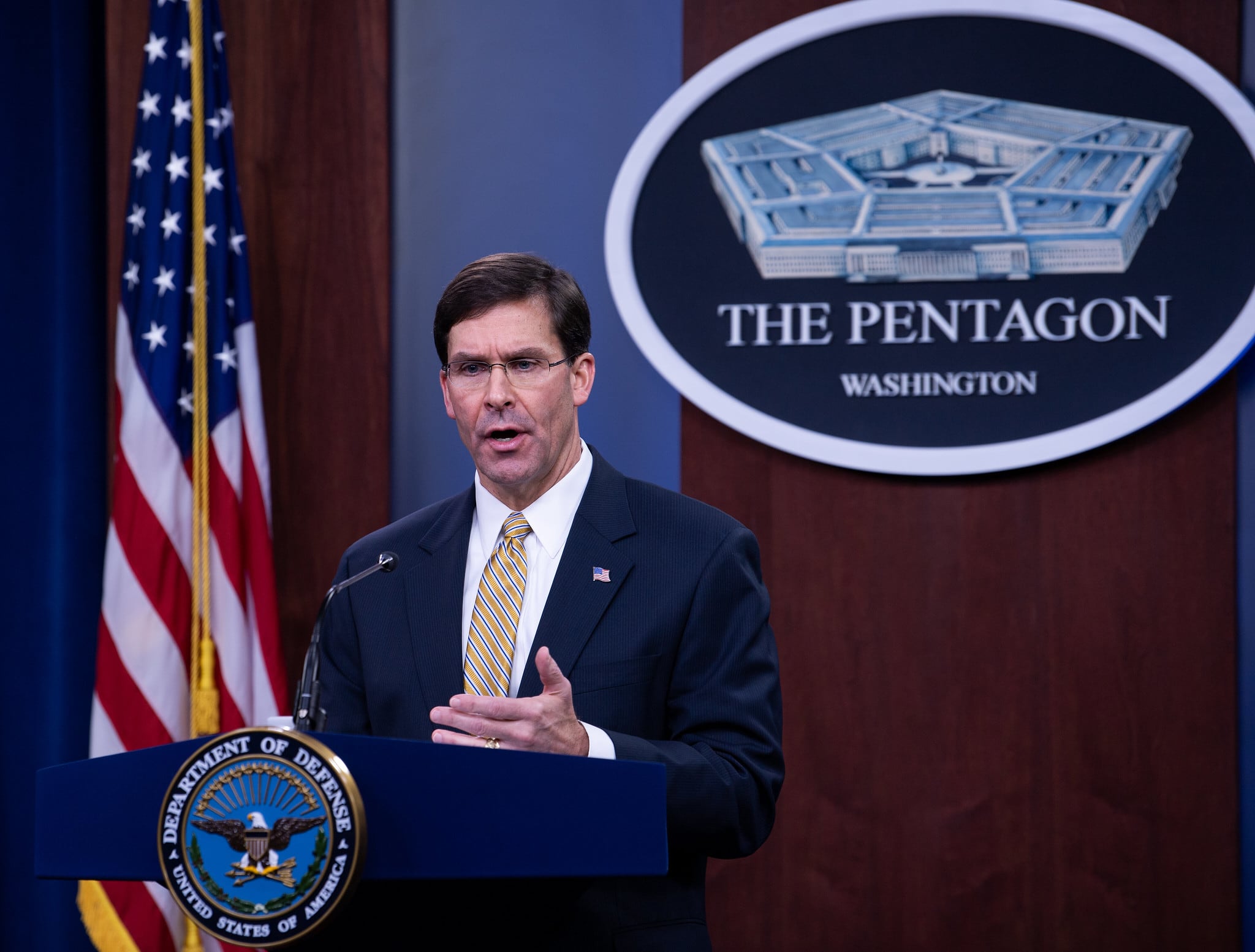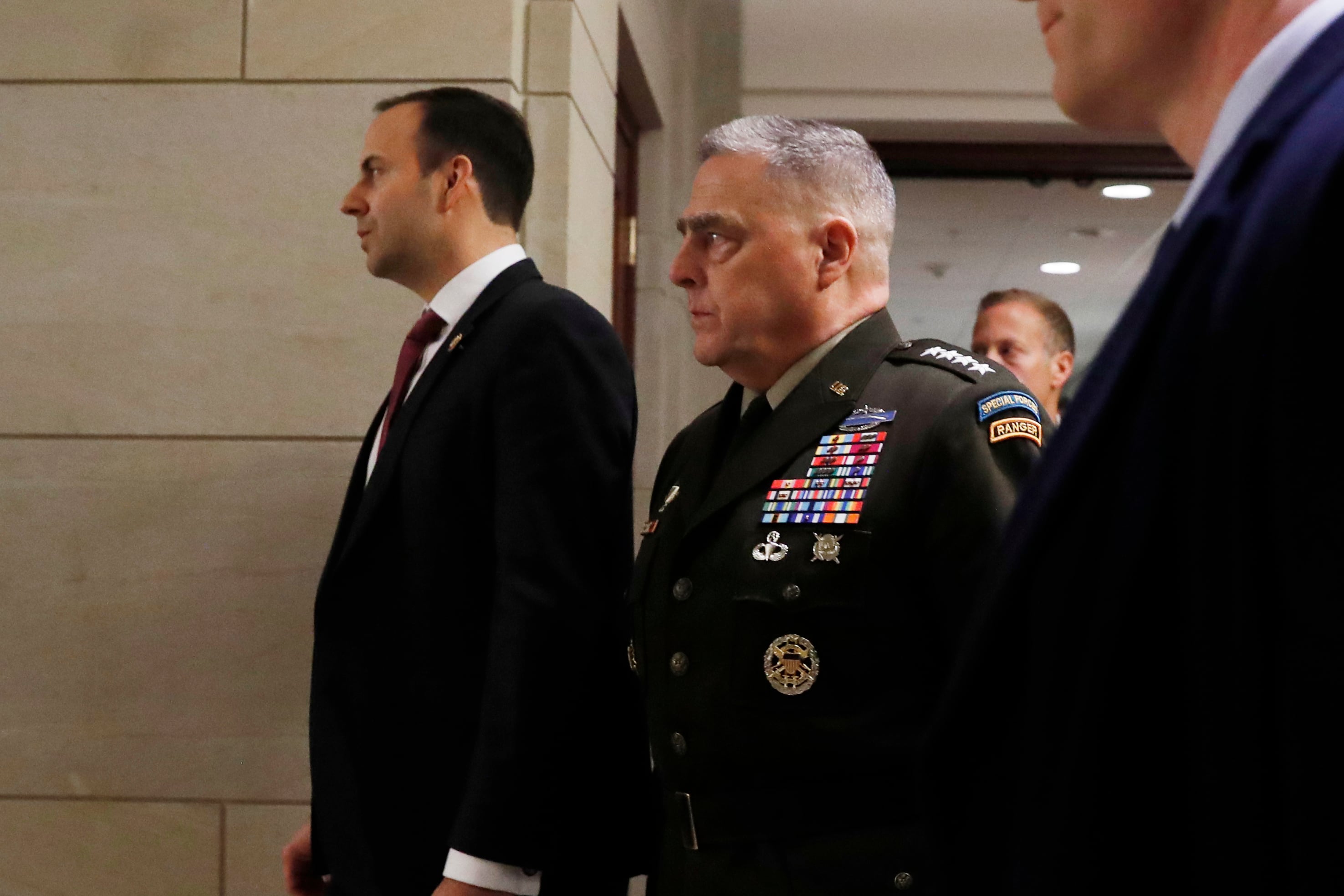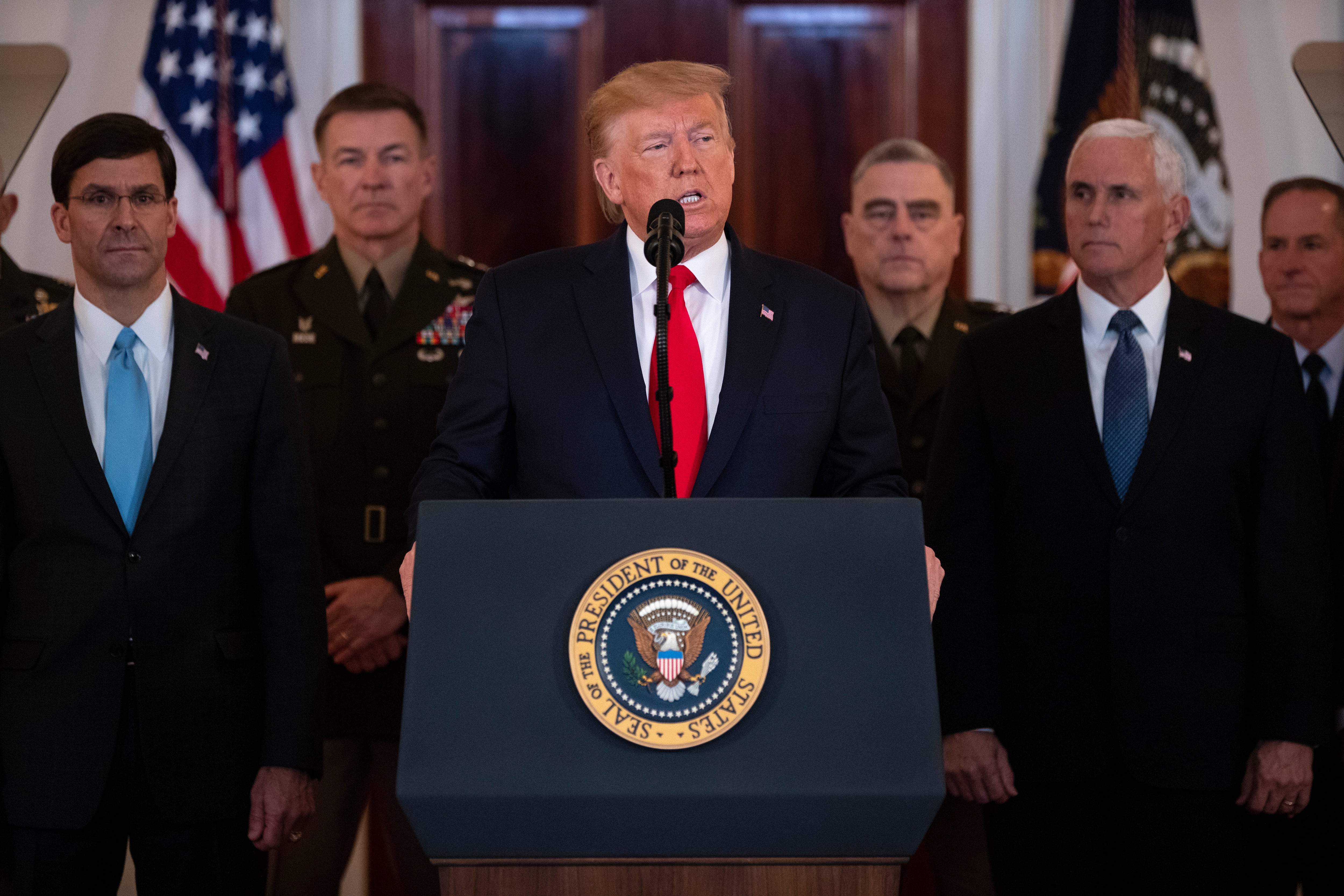Defense Secretary Mark Esper made the morning rounds on two Sunday news shows, echoing President Trump’s assertion that not only was Gen. Qasem Soleimani planning more attacks on the U.S., he had four embassies in his sights.
While only citing intelligence about the threat in Baghdad, Esper told CBS’s Margaret Brennan that his opinion wasn’t based on any specific intelligence citing threats against four embassies.
“I didn’t see one, with regard to the four embassies,” he said. “My expectation was, they were probably going to go after our embassies.”
“Probably” and “could have been,” Brennan said quoting Esper, sounded more like assessments than evidence.
“Well the president didn’t say ― he didn’t cite a specific piece of evidence,” Esper said.

Esper told CNN’s Jake Tapper that he also believed multiple embassies were under threat.
“What the president said with regard to the four embassies is what I believe as well,” Esper said. “He said he believed that they probably ― that they could have been targeting the embassies in the region. I believe that as well, as did another national security team members.”
Esper declined to cite any specific intelligence about the threats. Tapper countered that the president had shared the threats publicly, including on Fox News.
“The president said very publicly that he believed ― believed is not the same as evidence,” Tapper said.
But the president was not citing intelligence when he said he believed in the threat, Esper countered.

Members of the administration briefed Congress about the Soleimani killing and the threats he posed to Americans, but many ― on both sides of the aisle ― denounced the briefing as vague and dissatisfying, and have since come out to say they were never told that four embassies were at risk.
“Why is Trump telling this to Fox News, but the administration is not briefing Congress on this threat of four embassies, unless there was actually no specific intelligence that there was a threat to four embassies?” Tapper said.
RELATED

Senior members of the House and Senate, as well as the top leaders of their intelligence committees, were given all of the classified details, Esper said.
“The bottom line is, we had exquisite intelligence that can only be shared with the Gang of Eight, so I understand the frustration of many members of Congress,” he added. “I’m not going to go into details of what they were briefed, partly because I wasn’t there.”
He also invoked the threat against U.S. service members, arguing that he felt the risk of not doing anything was too great.
“I’d rather be here discussing this topic with you, rather than going up to Dover Air Force Base and standing there while flag-drapped coffins come home, and I have to explain to husbands and wives, sons and daughters, why their service member died when I had information that could have prevented it,” he said.
RELATED

While Esper touted the U.S. achievement of deterring Iran from further attacks, after the country’s military launched 16 rockets onto coalition bases in Iraq on Tuesday night, he lamented the shooting down of a commercial flight on Thursday that killed 176 passengers.
In the immediate aftermath of the attack, Iranian state news reported that tensions with the U.S. had contributed to what it has now called an accident.
“It’s a shame that the first reaction of the Iranian government, to show their corruption ― one, to say that it was American propaganda, when clearly it was just a horrible mistake,” Esper said. “To somehow allow Iran to play the victim card with the international community is just ridiculous.”
Going forward, however, the administration is hoping to sit down with Iran’s leadership to discuss shifting from hostilities to a diplomatic partnership, where Iran commits to conducting itself like a “normal country.”
“The president has drawn no preconditions, other than to say we’re willing to meet with the Iranian government,” Esper said.
Meghann Myers is the Pentagon bureau chief at Military Times. She covers operations, policy, personnel, leadership and other issues affecting service members.




